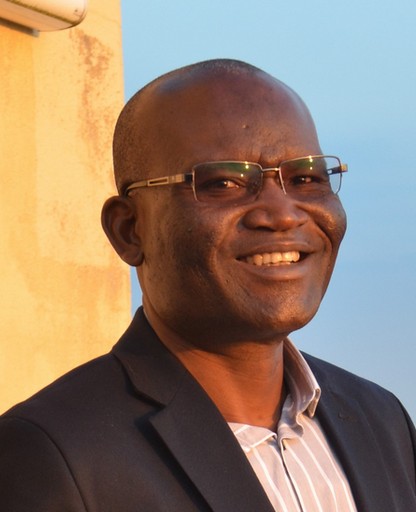

 Leo Zulu
Leo Zulu Leo Zulu is an Associate Professor of Geography at Michigan State University, in the USA. He has more than 25 years of combined international experience on natural resources management, biodiversity conservation and coordination, human dimensions of land use and cover change, environment and development, community-based natural resources management, climate change governance, and vulnerability and adaptation of rural communities in Southern Africa to climate change adaptation in LDCs especially Africa, training on the use of modern Geographic Information Systems (GIS) and remote sensing analysis in climate change adaptation planning under NAPAs and NAPs. He has also provided expertise to the LDC Experts Group (LEG) and worked with the UNFCCC Secretariat, including training LDC and SIDs national experts on the use of GIS and remote sensing for developing of NAPAs, vulnerability analysis, writing technical papers on adverse effects of climate change under decision 1/CP.10, paragraph 14 (http://unfccc.int/resource/docs/2007/sbi/eng/24.pdf), NAPA preparation, design of implementation strategies and submission of updated priority activities (http://unfccc.int/resource/docs/publications/ldc_tp2009.pdf), and financing mechanisms for non-Annex 1 countries, the transition from NAPAs to NAPs, and other NAP development activities. He has also provided technical expertise on the development of NAP guidelines, and made presentations at the 1996 NAP Expo on targeting the poor in vulnerability analysis for adaptation planning.
Leo Zulu’s recent work includes facilitating as the resource person the priority-setting workshops for adaptation knowledge under the Lima Adaptation Knowledge Initiative (LAKI) administered by the UNFCCC and UNEP. He facilitated the prioritization for the Southern Africa sub-region (Johannesburg, March 2015) and for the Indian Ocean Island Nations Sub-region (Colombo, Sri Lanka, October 2016). Other work includes a review of climate change research on agriculture in Malawi, an ongoing 5-year postdoctoral training project (2014-19) on the link between irrigated agriculture and malaria under climate change. He is also part of another ongoing 5-year (to 2019) USAID funded forestry project (Protecting Ecosystems and Restoring Forests in Malawi) helping Malawi to build the capacity in multiple dimensions to prepare for REDD+. As part of that project, Leo is currently leading the development of a Malawi National Charcoal Strategy to make way for more sustainable production of charcoal while seeking affordable energy alternatives. His professional experience also includes more than 11 years of university teaching, training and graduate student supervision including on climate change adaptation and governance in Africa. Leo also conducts research on disparities in access to health services and modeling spatio-temporal patterns of infectious diseases (including HIV/AIDS) in Africa using geospatial analysis tools.